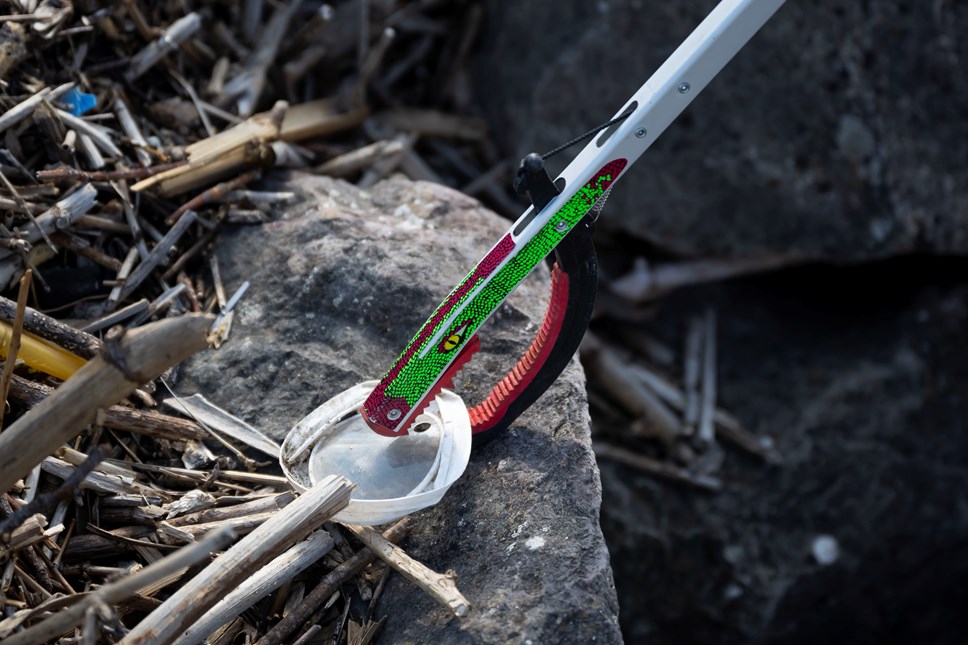
Wales at the forefront of UK action as Senedd says no to single-use plastics
Cymru ar flaen y gad o fewn y DU wrth i'r Senedd wahardd plastigau untro
Wales will become the first part of the UK to legislate against a thorough list of single-use plastics as the Senedd approves legislation to ban selling unnecessary, disposable products to consumers.
The new law is a key step in reducing the flow of damaging plastic waste into the Welsh environment and is being introduced following consultation with the public and other stakeholders.
Taking effect in autumn 2023, it will give local authorities the power to enforce the offence of supplying or offering to supply the commonly littered items – even when they are free.
Wales is currently ranked as the world’s third best domestic recycler and the new law demonstrates how the Welsh Government is continuing to take ambitious steps to tackle the climate and nature emergencies.
Moreover, the Bill allows the Welsh Government, working with the Senedd, to revise the current list of banned or restricted products meaning Ministers will be able to ban other types of environmentally harmful single-use plastic products in the future, by passing regulations.
Speaking after the vote, Climate Change Minister, Julie James, said it puts Wales in the driving seat for future action:
“As well as being unsightly, single-use plastics are extremely destructive to our wildlife and environment.
“Building a greener Wales requires a team effort. This new law builds on the efforts of communities, businesses and young people who have already chosen to go plastic free.
“Now is the time for all of us to think differently and change our habits to avoid leaving a legacy of plastic waste for future generations.”
Most plastic is made from fossil fuels. Reducing it can assist efforts towards net zero and help to minimise the worst impacts of climate change.
The Minister added: “We will continue to work with industry, businesses, third sector bodies, academia, and others – ensuring we say goodbye to the scourge of this littered plastic from our streets, parks and seas for good.”
Owen Derbyshire, Keep Wales Tidy Chief Executive said: “Keep Wales Tidy welcomes legislation to ban single-use plastics. It is a positive step on our journey towards transforming the way we consume plastics and reduce waste as a nation. Crucially, it paves the way for industry to move away from polluting practices which are damaging our environment and harming our wildlife.
“We hope that the powers granted in the Bill will allow Wales to respond to emerging threats of other single-use products as consumer trends continue to evolve.”
Louise Reddy, Policy Officer, Surfers Against Sewerage said: “As more plastic floods into the ocean every year, Wales’ ban on single use plastic is a great step to ending plastic pollution. We look forward to Wales continuing to stop plastic in its tracks by transitioning to a circular economy and ensuring polluters pay for the good of people and planet.” – Louise Reddy, Policy Officer, Surfers Against Sewerage.
Notes to editors
Notes to editors
The Environmental protection (Single-use Plastic Products) (Wales) Bill bans or restricts
- Cutlery
- Plates
- Stirrers
- Drinking straws (with an exemption for people who need straws to live independently)
- Plastic-stemmed cotton buds
- Balloon sticks
- Expanded and foamed extruded polystyrene fast-food containers
- Expanded and foamed extruded polystyrene cups
- Polystyrene lids for all cups and fast-food containers
- Thin plastic single-use carrier bags (with exemptions e.g. for food hygiene)
- All products made of oxo-degradable plastic
The decision to include these products follows a consultation in 2020, with all having non-plastic or reusable alternatives.
Welsh Government will work closely with businesses, manufacturers, public sector groups, communities and protected characteristic groups to develop comprehensive guidance to support the implementation and enforcement of the legislation. This will include clear communication to help raise awareness of products no longer available and how to access alternatives.
